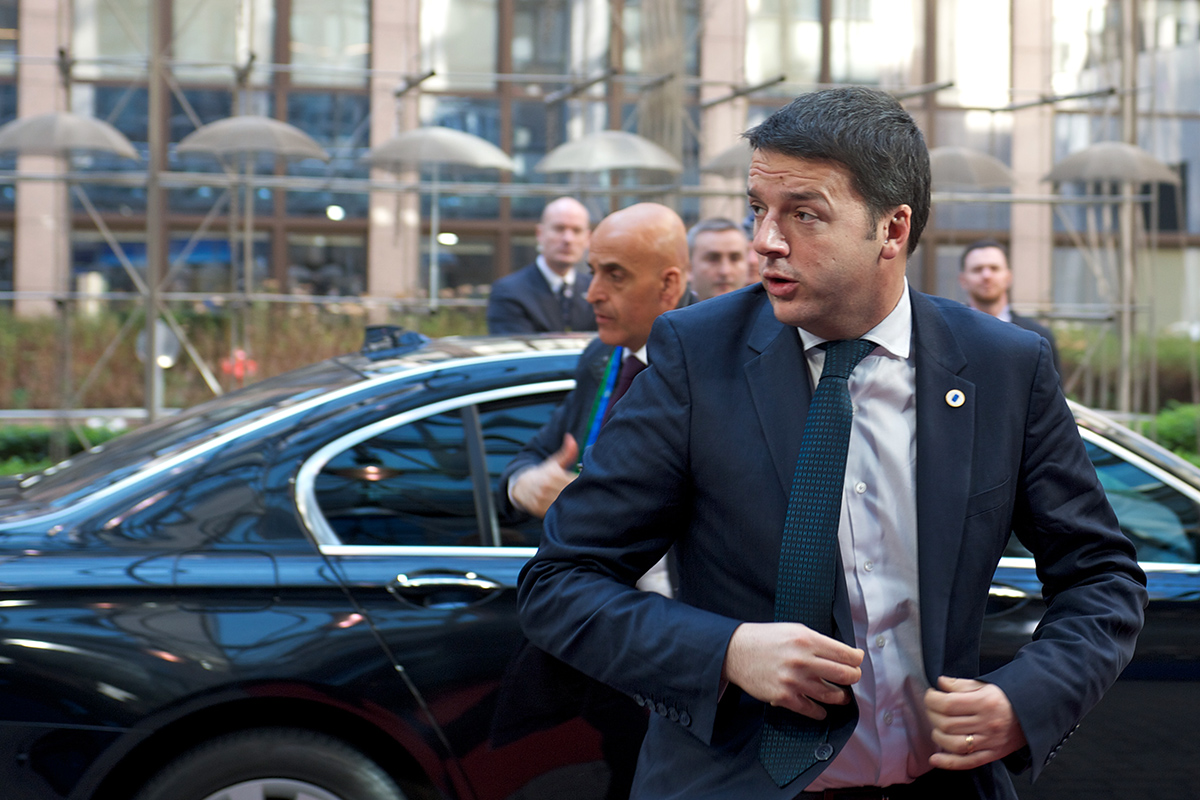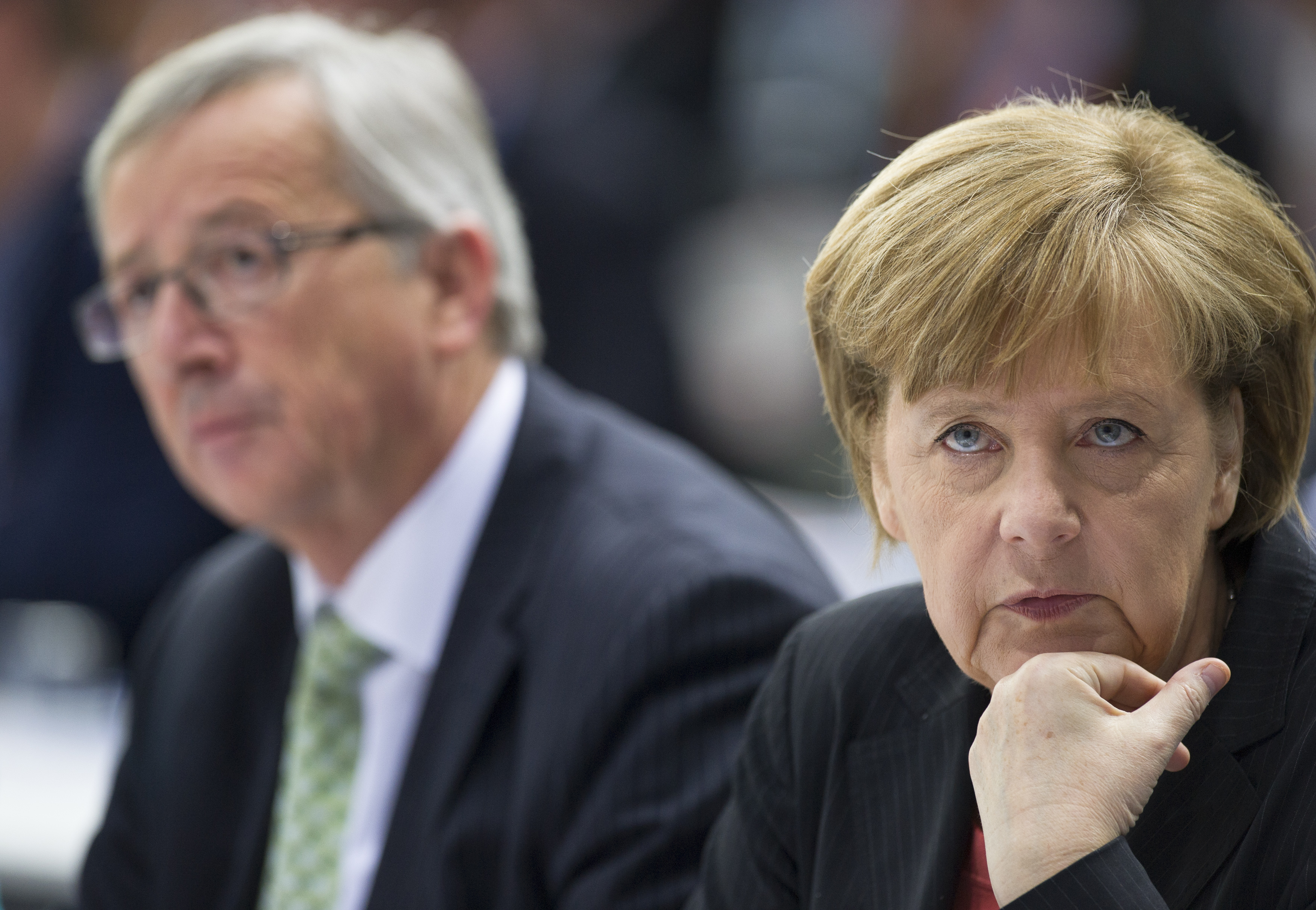Excuse us being the latest of a long string of commentators to use this time-honored title for our blog post, but sometimes it’s a reminder that just has to be said again and again.
This weekend, case in point, European leaders are once again meeting in Brussels for their third attempt to settle on who gets the EU’s top jobs for the next five years. Cue chatter in the press, on Twitter, and all across town revolving around the thrilling question of whether a Dane or a Pole will get to fill the shoes left by Herman van Rompuy when he vacates the office of the President of the European Council. Similarly, people wonder, should Europe appoint a foreign policy chief that could strike a conciliatory tone with Russia, or one who might stir the pot just a bit more?
This is, superficially, what this weekend’s summit is supposed to decide, allowing European Commission President-designate Jean Claude Juncker, to get on with the business of forming his college of Commissioners. The real machinations under the surface, however, are proving to be far more complex, and (surprise!) are actually all about the economy.
By the numbers, Europe has been having a tough year. Everyone started 2014 taking about the recovery finally – finally! – taking hold, and shifting their focus to post-crisis policy. In reality though, Eurozone inflation has dropped to worryingly low levels, economic growth seems to be stalling in many countries (with Italy sliding back into a technical recession this month), and the simmering conflict between Russia, Ukraine and its ambiguously-badged ‘rebels’ has sparked a two-way sanctions battle that threatens to undermine exports and, in turn, growth for a number of European economies.
 European politicians and officials have been quick to notice this – and while watching their approval ratings plunge and support for radical anti-establishment parties soar – they know that something has to be done, and done quickly. Italy, benefiting from a charismatic new Prime Minister in Matteo Renzi and from holding the rotating Presidency of the Council of the European Union, has pushed relentlessly for greater flexibility to be introduced into EU fiscal rules, thereby allowing governments to ease-off austerity. France has backed this push with its embattled President, Francois Hollande, calling this week for a special Eurozone Summit to be held to agree on specific measures for boosting growth and investment across the continent.
European politicians and officials have been quick to notice this – and while watching their approval ratings plunge and support for radical anti-establishment parties soar – they know that something has to be done, and done quickly. Italy, benefiting from a charismatic new Prime Minister in Matteo Renzi and from holding the rotating Presidency of the Council of the European Union, has pushed relentlessly for greater flexibility to be introduced into EU fiscal rules, thereby allowing governments to ease-off austerity. France has backed this push with its embattled President, Francois Hollande, calling this week for a special Eurozone Summit to be held to agree on specific measures for boosting growth and investment across the continent.
So, great then, right? Who doesn’t want to boost growth an investment? Well, let’s just steal our next cliché from Facebook as say that “it’s complicated”.
Complicated, because, while other EU Member States, chiefly Germany, are all for increased growth and investment, they harbor deep concerns that easing EU budget rules could reduce the incentive for countries to make the necessary structural changes needed to boost their own economic competitiveness, and could lead to the kind of fiscal profligacy that started the Eurocrisis in the first place. This also isn’t just a purely political or economic calculation, but an institutional one that gets to the very credibility of the EU’s system of checks and balances, and how Europe’s treasuries are viewed in international credit markets. For now, Germany is nodding politely to the calls for renewed economic initiatives, but this hides a deeper political game being played that may not come to the surface for some time yet, but that will nevertheless be a dominant theme in this weekend’s Summit negotiations.
 Jobs likley to be as, if not more, contentious than the Council President and High Rep posts, will be the EU’s Commissioner for Economic Affairs and the Chair of the Eurogroup. Two officials who wield significant influence in determining and policing Europe’s budget rules. Witness this morning’s revelation in the German press that Angela Merkel’s government is planning to strongly oppose the nomination of France’s Pierre Moscovici to the Commission’s economic portfolio. That’s them putting one card on the table – they’ve still got a few more in their hand.
Jobs likley to be as, if not more, contentious than the Council President and High Rep posts, will be the EU’s Commissioner for Economic Affairs and the Chair of the Eurogroup. Two officials who wield significant influence in determining and policing Europe’s budget rules. Witness this morning’s revelation in the German press that Angela Merkel’s government is planning to strongly oppose the nomination of France’s Pierre Moscovici to the Commission’s economic portfolio. That’s them putting one card on the table – they’ve still got a few more in their hand.
Ultimately, however, the economic picture coupled with the fallout from the tensions with Russia present a challenge that Eurozone leaders – French, Italian, and German too – know that they have to address. The sting of squeezed trade with Russia may provide the necessary bit of extraordinary justification for a one-time easing of austerity measures. Alternatively, something even more ambitious might take shape, like substantially increasing the size and roll-out of Juncker’s 300 billion euro investment plan. The ECB could even step in with a US-Fed style quantitative easing programme to inject more cash into the economy.
In the end though, all this comes down to whether European leaders can leverage this year’s unexpected challenges to get a strong mandate from their domestic audiences, and use that to work with each other to strike a balance between fiscal responsibility and growth that is as sustainable politically as it may be economically. This is much easier said than done, but it’s the one issue that will dominate the agenda this weekend, and very likelyfor the rest of the year.
By Martin Bresson, Scott Martin, and Claire Bravard
2 Comments
Find Out More
-
Generative AI is changing the search game
May 8, 2025
-
The challenges facing Europe and European leaders at Davos 2025
January 24, 2025



September 04, 2014 | 6:29 AM
Thank you! Your comment is awaiting moderation.
<strong>deathly hallows necklaces</strong> Public Affairs 2.0 » Itâs the economy stupid!
September 01, 2014 | 6:47 AM
Thank you! Your comment is awaiting moderation.
[…] It’s the economy… stupid! […]